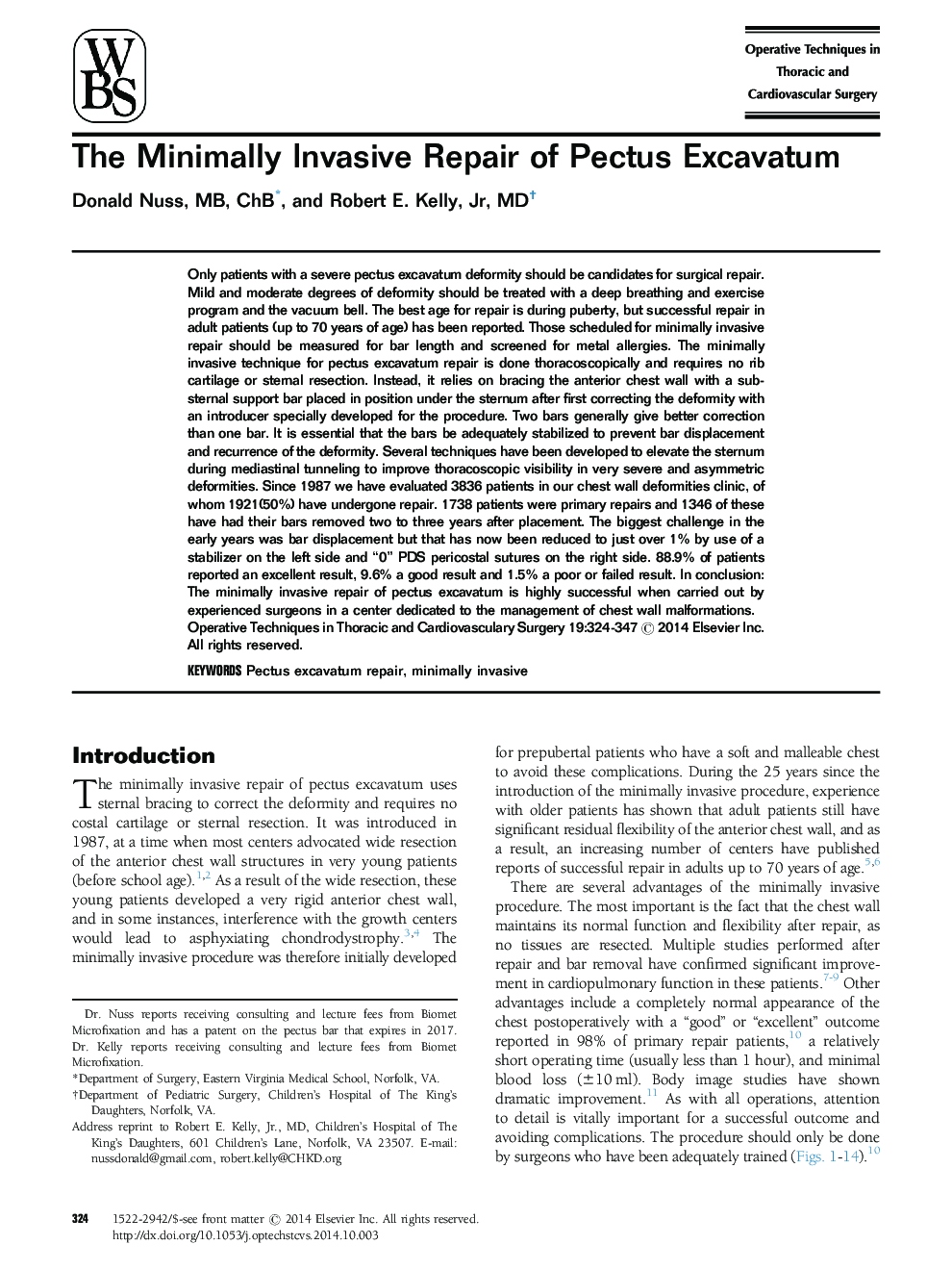| Article ID | Journal | Published Year | Pages | File Type |
|---|---|---|---|---|
| 5996842 | Operative Techniques in Thoracic and Cardiovascular Surgery | 2014 | 24 Pages |
Only patients with a severe pectus excavatum deformity should be candidates for surgical repair. Mild and moderate degrees of deformity should be treated with a deep breathing and exercise program and the vacuum bell. The best age for repair is during puberty, but successful repair in adult patients (up to 70 years of age) has been reported. Those scheduled for minimally invasive repair should be measured for bar length and screened for metal allergies. The minimally invasive technique for pectus excavatum repair is done thoracoscopically and requires no rib cartilage or sternal resection. Instead, it relies on bracing the anterior chest wall with a sub-sternal support bar placed in position under the sternum after first correcting the deformity with an introducer specially developed for the procedure. Two bars generally give better correction than one bar. It is essential that the bars be adequately stabilized to prevent bar displacement and recurrence of the deformity. Several techniques have been developed to elevate the sternum during mediastinal tunneling to improve thoracoscopic visibility in very severe and asymmetric deformities. Since 1987 we have evaluated 3836 patients in our chest wall deformities clinic, of whom 1921(50%) have undergone repair. 1738 patients were primary repairs and 1346 of these have had their bars removed two to three years after placement. The biggest challenge in the early years was bar displacement but that has now been reduced to just over 1% by use of a stabilizer on the left side and “0” PDS pericostal sutures on the right side. 88.9% of patients reported an excellent result, 9.6% a good result and 1.5% a poor or failed result. In conclusion: The minimally invasive repair of pectus excavatum is highly successful when carried out by experienced surgeons in a center dedicated to the management of chest wall malformations.
